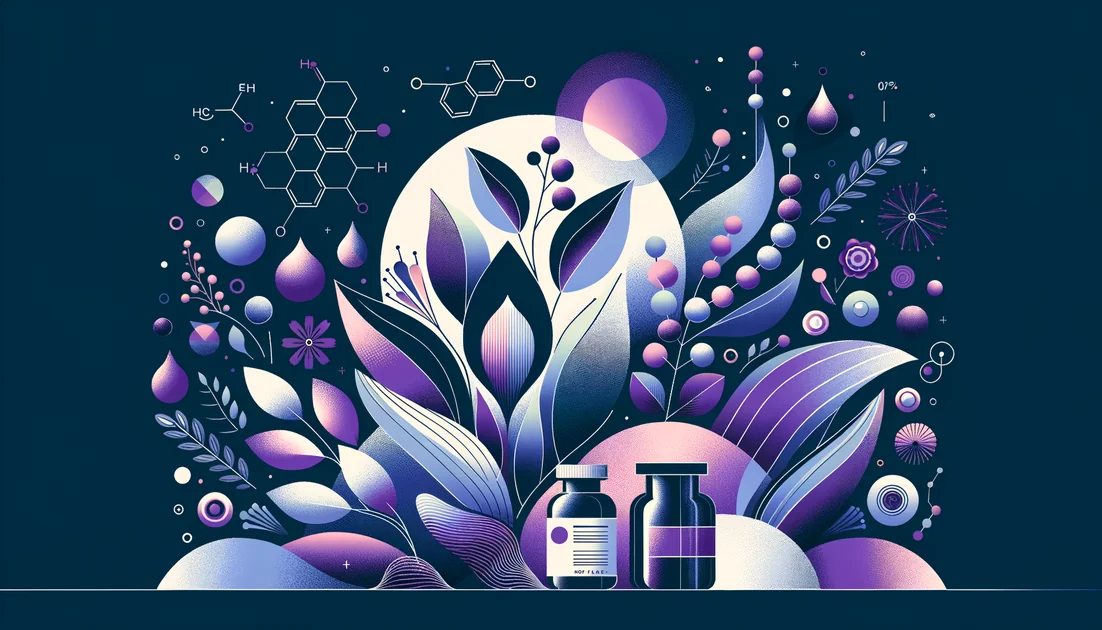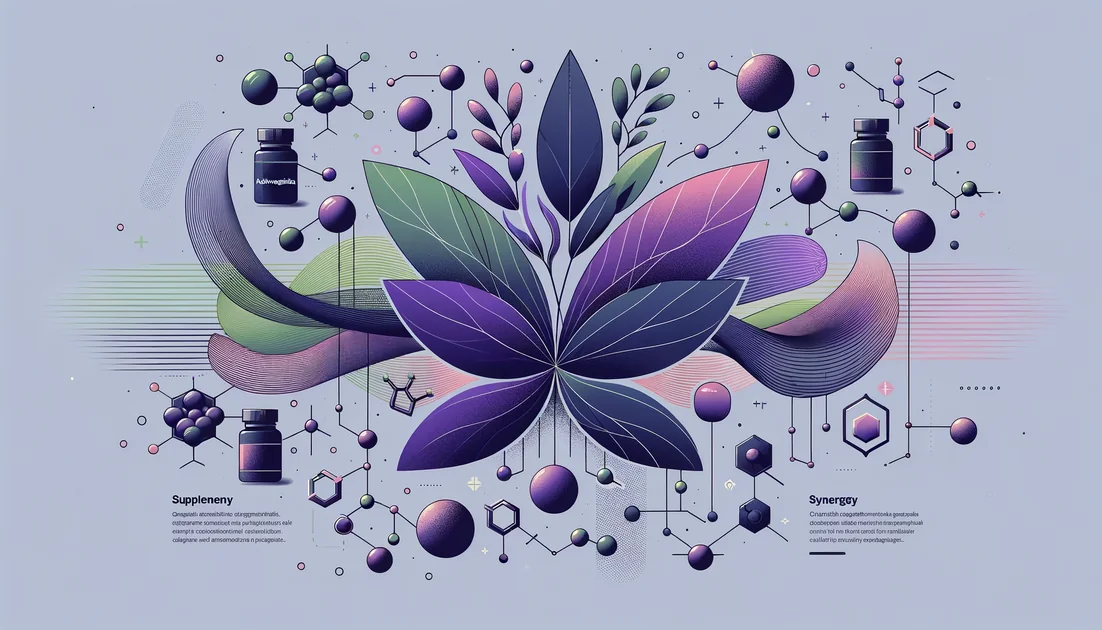
The Scent of a Promise: How Raspberry Ketone Leapt from Perfume Labs to Weight-Loss Hype
Open a bottle of raspberry flavoring and the room fills with a bright, candy-sweet aroma. That same aromatic molecule—raspberry ketone—now shows up in fat-burner capsules. How did a scent molecule for candy and perfume become a shortcut for shrinking waistlines?
- Evidence
- Preliminary
- Immediate Effect
- No → 6–8 weeks (only in multi-ingredient trial)
- Wears Off
- Unknown
From perfume counter to pill bottle
Raspberry ketone is best known for what your nose notices: it's the small, volatile molecule that gives raspberries much of their signature smell. Flavor chemists prized it long before dieters did, synthesizing it in vats because plants make only trace amounts. In nature it even moonlights as a pollination lure—certain orchids perfume themselves with raspberry ketone to attract fruit flies, which then ferry their pollen like tiny delivery drivers. The story starts in aroma science, not metabolism. [8] A decade ago, though, raspberry ketone was vaulted onto daytime TV as a "miracle" for fat loss. The headline was irresistible: a natural berry molecule that could ignite fat burning. But beneath the sizzle was a puzzle—was there any human evidence? [16]
What the early science actually saw
In the 2000s, lab groups began tinkering with raspberry ketone in rodents and in fat cells grown in dishes. In mice fed a high-fat diet, very large doses of raspberry ketone helped prevent weight gain and reduced fat in the liver. Think of it like turning up a furnace in the body's fat depots; in test-tube fat cells, raspberry ketone also nudged the cells to release stored fat and boosted levels of adiponectin, a hormone that often falls when we gain weight. [1][2] That sounded promising—until more careful experiments asked a harder question: was weight change simply because the animals ate less? In 2017, researchers pair-fed mice (controlling food intake so groups ate the same). Raspberry ketone didn't shrink fat much beyond what could be explained by lower calories, suggesting the "furnace" may not be as magical as first imagined. [3] Newer animal work adds another twist. At some doses, raspberry ketone changed gene activity in white fat and, at very high acute doses, even caused a brief loss of righting reflex—mice tipping over as if sedated—which is hardly the thermogenic spark consumers imagine. [9] And in toxicity studies, a single large bolus dose suppressed feeding but came with worrying pathology and deaths in male mice. The message from the bench: dose matters, and the safety window isn't well mapped. [10]
The human trials (and their fine print)
Hoping for clarity, a 2013 trial put overweight adults on a structured 8-week plan: calorie-cut menus, supervised boot-camp workouts, and either placebo or a multi-ingredient capsule whose label stars included raspberry ketone alongside caffeine, capsaicin (the spicy compound in chili), bitter orange (synephrine), garlic, ginger, B-vitamins and chromium. The supplement group lost more fat and trimmed more from hips and waists. But with that many active ingredients—and everyone dieting and exercising—no one could credibly credit the aroma molecule. It's like tasting a complex stew and trying to decide which spice did the work. [4] Registered dietitian Ginger Hultin put it plainly: "Everyone wants it to be a little easier.. because weight loss is really hard." Her take on raspberry ketones? They're "not well-studied and not proven." [5] Other experts have focused on safety. Pharmacist-researcher Catherine Ulbricht summarized the evidence with uncommon brevity: "There is currently not enough reliable safety information on the use of raspberry ketone in humans." [6] That caution extends to the U.S. military's Operation Supplement Safety program: "There is simply not enough research to say that raspberry ketone in dietary supplements is safe." [7]
A regulatory paradox
Here's the confusing part for consumers. Raspberry ketone is allowed as a flavoring in tiny amounts; it appears in FDA inventories under the flavoring regulation 21 CFR 172.515. That's about sprinkling a few milligrams into foods for aroma—not swallowing 100–1,400 mg a day as a stand-alone supplement. Different use, different exposure. [11] Across the Atlantic, UK authorities have treated most supplemental forms as a "novel food," meaning they need pre-market approval. Toxicologists have also flagged that common supplement doses can exceed conservative safety thresholds derived from animal data by wide margins, urging better study before high-dose daily use. [12]
The quality cliff
Even if raspberry ketone "worked," what's in the bottle may not match the label. A 2025 analysis used mass spectrometry to test products that claimed specific amounts of raspberry ketone. Six in ten didn't contain what they said—usually less. That's a trust problem, regardless of efficacy. [15]
Misconceptions worth clearing up
Despite the name, raspberry ketone is not a "ketone body" and does not put you into ketosis like a ketogenic diet or exogenous ketone drinks do. The word "ketone" here is chemistry, not metabolism. [8]
Animal hints aren't human proof. Some rodent results appear tied to eating less, not burning more. [3]
Dose matters—and we don't know the human safety window at supplement levels. [6][10]
The side-paths: skin and hair
An unexpected thread came from dermatology: a small, early study tested a 0.01% topical raspberry-ketone lotion. Half of ten people with hair loss saw regrowth at five months, and cheek skin elasticity improved in five women after two weeks. It's tiny, uncontrolled and needs replication, but it reminds us that molecules can act very differently on skin than when swallowed. [17]
Where the research is headed
Two pragmatic shifts are visible. First, some labs are exploring whole-raspberry phenolic extracts—nature's team sport—rather than isolating one star player. In mice, a phenolic-rich raspberry extract performed similarly to raspberry ketone at reducing weight gain, hinting the broader polyphenol orchestra might matter more than a soloist. [13] Second, scientists are mapping context: sex differences, diet background, and gene responses. A 2023 study found raspberry ketone plus a ketogenic diet reduced fat more in male mice and improved glucose handling in females, suggesting biology's "it depends" is alive and well. [14]
If you're still curious
Expect no quick spark. Any observed body-composition changes in people came over 6–8 weeks, alongside diet and exercise, and with many other stimulatory ingredients. [4]
Be wary of stimulant stacks. Raspberry ketone products often ride with caffeine and bitter orange (synephrine), which can raise heart rate and blood pressure—an unhelpful combo if you're sensitive or have cardiovascular risks. [4]
Verify the product. Look for third-party testing and be skeptical of big milligram claims; quality checks have found frequent label shortfalls. [15]
Consider the simple swap: whole raspberries bring fiber and anthocyanins with proven metabolic upsides, minus the dosing unknowns. [13]
In the end, raspberry ketone is a tale of scent outrunning substance. A molecule that lures fruit flies to flowers and flavorists to factories became a symbol of shortcut culture. The more careful we look, the more it reads like a mirage shimmering over the hard road of behavior change. If there's a lesson, it's this: chase the habits that move the needle, not the perfume of a promise. [5][6]
Key takeaways
- •Raspberry ketone's story starts in aroma science, not metabolism; it's the molecule behind raspberry scent, long used by flavor and fragrance chemists.
- •Animal and cell studies show signals (fat release, higher adiponectin) at very high exposures, but these don't translate to proven human fat loss.
- •Human evidence is limited and mostly in multi-ingredient formulas; raspberry ketone alone hasn't shown reliable, independent effects.
- •There's no validated human dose; food-flavor limits don't map to the 100–1,400 mg/day found in capsules, and any body-comp changes appeared over 6–8 weeks with diet/training.
- •Cautions: possible stimulant combos, blood-sugar considerations for those on diabetes meds, DoD cautions for service members, and animal toxicology concerns at higher intakes.
- •For most readers, whole raspberries (fiber, anthocyanins) plus sleep, nutrition, and training are more evidence-based than a raspberry-ketone pill.
You might also like
Explore more of our evidence-led investigations, comparisons, and guides across every article style.

Bluebonnet Nutrition (supplements)
The Paradox of Bluebonnet Nutrition: Certification Powerhouse, Modest Innovation, Limited Public COAs

Collagen Peptides (Hydrolyzed) vs Bone Broth (Traditional/Commercial)
For targeted, measurable support (especially joints) choose collagen peptides. Pick bone broth for a warm, savory, light-protein drink—just don't count on it for clinically studied collagen doses. [1][2][3]

Best for Histamine Intolerance
DAO enzyme: 10–30k HDU before meals

Calcium
In 1808, a young Humphry Davy hooked his new battery to a paste of "lime," boiled off the mercury, and—against all expectations—pulled a silvery metal from stone. He called it calcium, after calx, the old word for burnt limestone. Two centuries later, calcium still sits at the center of a different kind of experiment: what happens when a mineral that built civilizations becomes a supplement in your cabinet? [1]

Ashwagandha + Rhodiola: Calm Energy or Just Hype?
Dual-core, theoretical synergy: good rationale, solid solo data, but no head-to-head Ashwagandha+Rhodiola trials yet.

Tocotrienols
The stealthier cousins of vitamin E—built with springy tails that move differently in cell membranes and behave differently in your body.
